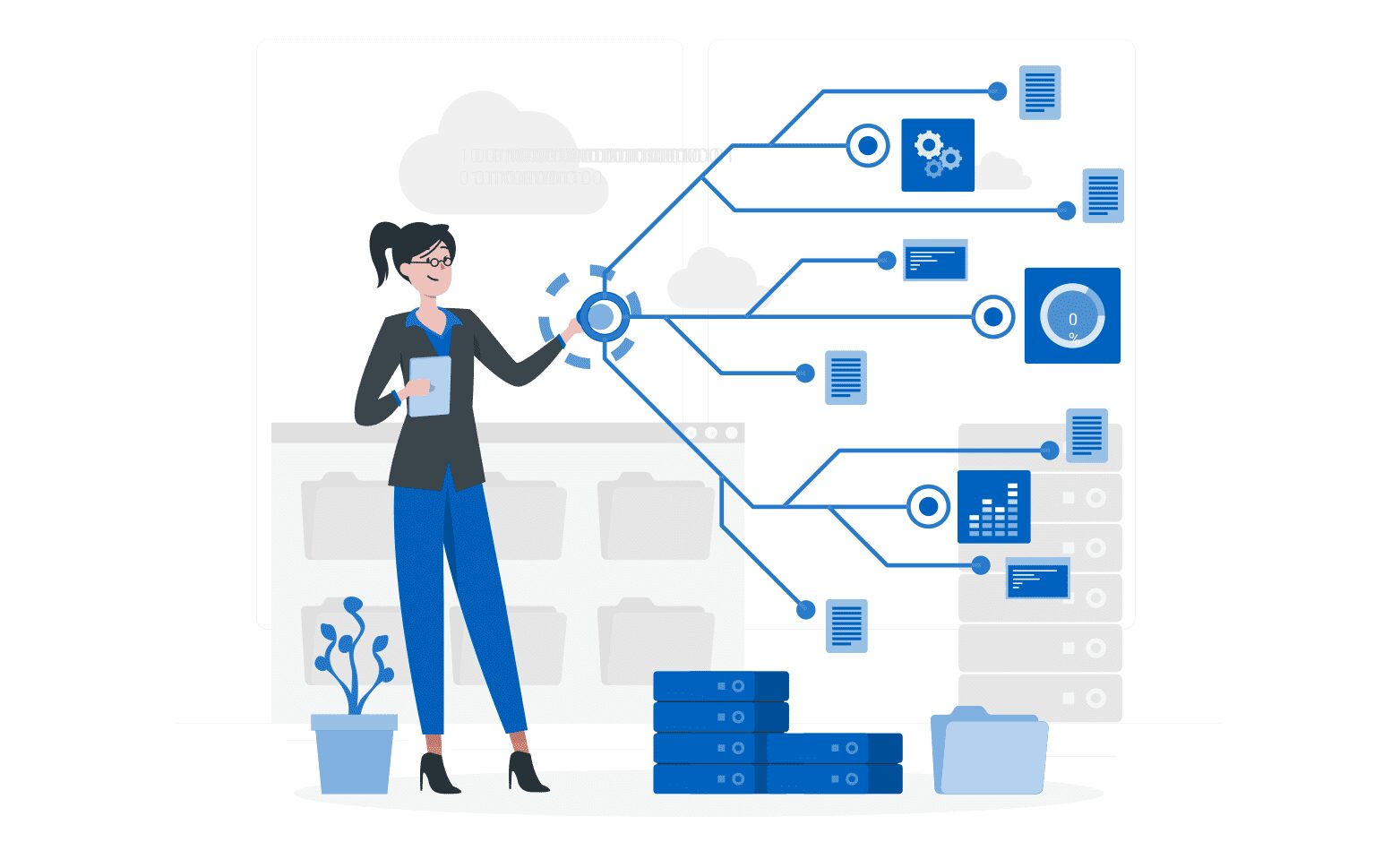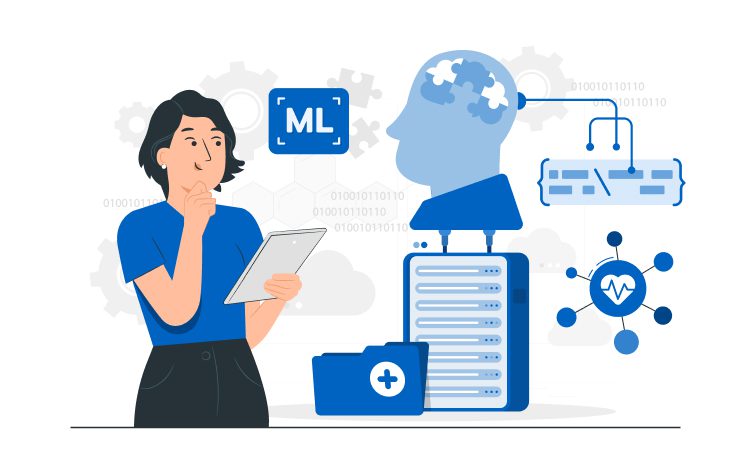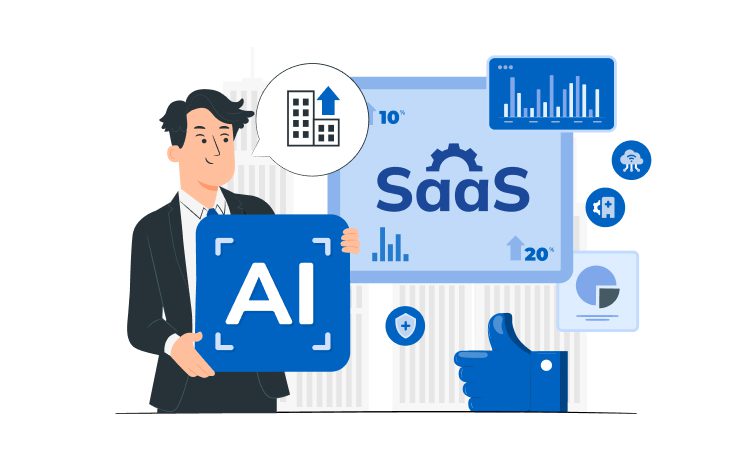
Bespoke Software Development: Solutions for Transforming Your Business



With the development of the software industry, most companies create various types of software to streamline their business processes, improve communication with customers, and achieve competitive edge.
Large and small businesses worldwide opt for bespoke software development for its long-term benefits and strategic advantages.
Bespoke software solutions are custom-developed to meet the specific operational needs of a business, providing tailored functionalities that off-the-shelf software packages can’t offer.
Hybrid systems and off-the-shelf solutions are still on the market. Still, since they don’t offer customized approaches and features, many businesses switch to bespoke solutions for customization, integration, scalability, and long-term cost efficiency.
In this guide, we’ll explore the possibilities and opportunities of bespoke solutions, as well as the advantages and disadvantages of ready-made digital solutions.
Yes, bespoke software development can be a big investment, and the development process can be challenging. Despite these obstacles, the potential benefits are often worth the investment. Your costs will be focused on the design, development, and testing process. A properly developed custom software solution will increase efficiency, improve outcomes and increase your competitiveness in tough markets.
Andrei KasianauCEO, Glorium Technologies
Content
If you’ve ever used an EHR, CRM, trading applications, or other complex software, you have interacted with bespoke software explicitly designed to address your needs and requirements.
Bespoke software development is a multi-level process of designing, creating, and implementing software applications with features for a specific audience rather than a mass market.
Healthcare organizations, finance firms, retail and manufacturing, entertainment, and logistics firms use bespoke development to address their audiences’ needs and pain points.
Many healthcare organizations use bespoke development and app development to handle their specific workflows, patient management practices, and compliance with local regulations. For example, the Cleveland Clinic has developed a customized EHR system to manage patient information more effectively and integrate seamlessly with other healthcare services.
Goldman Sachs, for instance, developed Marquee, a custom platform that allows clients to access the bank’s analytics, trading, and risk management tools. This platform is specifically designed to meet the complex and specific needs of its users in the financial markets.
The entertainment industry employs custom app development to manage content libraries, handle licensing, and personalize user experiences. Netflix’s custom software algorithms help predict user preferences and manage vast amounts of data related to viewer habits and content performance.
Off-the-shelf software refers to standardized solutions developed for a mass sector, catering to a broad audience with standard, general features. This type of product is readily available and usable right after purchase without needing customization. It’s typically less expensive than bespoke app development because the costs are spread over many users.
You’ve probably used these off-the-shelf solutions:
What path you choose for your business can significantly impact your workflow efficiency, your company’s competitiveness, and your ability to innovate. While off-the-shelf software offers quick deployment and initial cost savings, it often falls short of meeting the unique needs of businesses pushing their industries’ boundaries.
| Criteria | Bespoke Software | Off-the-Shelf Software |
| Customization | Highly customizable to meet specific business needs and workflows. | Limited customization options; primarily generic features. |
| Integration | Designed to seamlessly integrate with existing business systems and processes. | May require additional work to integrate with current systems. |
| Scalability | Can be scaled precisely according to business growth and changing needs. | Scalability can be limited and not always aligned with user needs. |
| Cost Over Time | Higher initial cost but potentially lower total cost of ownership due to efficiencies and tailored features. | Lower initial cost but may incur additional costs for updates, customizations, and licenses. |
| Security | Can be tailored to include specific security measures relevant to the business’s needs. | Standard security features that may not address all specific threats. |
| Support and Maintenance | Direct support from developers who designed the software, offering tailored maintenance. | Generic support; dependent on vendor schedules and priorities. |
| Competitive Advantage | Provides a unique solution that can offer a competitive edge in the market. | Generic solutions that competitors may also be using. |
| Long-term Suitability | Evolves with the business, ensuring long-term relevance and functionality. | May become outdated if not regularly updated or if business outgrows the software capabilities. |
| User Experience | Tailored user interface and features designed specifically for the business and its clients. | Often generic user interfaces and experiences that may not align perfectly with user needs. |
When you order a solution from a bespoke software development company, you are ordering something unique and tailored to your particular business requirements. Firms often develop bespoke solutions for the sole authority benefits, customization advantages, and more.
In this section of our guide, you’ll learn more about custom application development. You’ll read about what advantages lead businesses to develop a bespoke solution and what disadvantages lead them to postpone it.
| Advantages: | Disadvantages |
| Suits all business models | Time-consuming process |
| Pay for what you order | Labor-consuming process |
| Control and ownership | Higher development costs |
| Participation in the production process | |
| Competitive edge | |
| Integration capabilities | |
| High level of security |
If you’re considering bespoke software – the perfect solution for your business – understanding its advantages can help you make an informed decision. Here’s how bespoke applications can benefit you across various aspects:
Suits all business models
Bespoke software is tailor-made to fit any business model, whether you’re a startup, a mid-size company, or a large enterprise. It’s designed to address your specific challenges and enhance your unique workflows, ensuring that all aspects of your business are supported precisely as needed.
Pay for what you order
With bespoke software, you only pay for the features you need. Unlike off-the-shelf software that may include unnecessary features at extra cost, your own software ensures you are not spending money on functionalities that offer no value to your business.
Control and ownership
Choosing bespoke software means you gain complete control and ownership over the software solution. This is crucial for maintaining autonomy over your business processes and making necessary adjustments as your business evolves without relying on external vendors.
Participation in the production process
As a client, you are involved in every step of the software and app. This participation ensures that the final product aligns perfectly with your expectations and business requirements, providing a sense of security that all your needs are being met.
Competitive edge
Bespoke software can provide you with a significant competitive benefit. It allows you to perform tasks more efficiently, offer unique services, or address customer needs in a way that competitors using more generic web apps cannot match.
Integration capabilities
Custom software can be designed to integrate seamlessly with your existing IT infrastructure, facilitating improved communication between different systems and platforms within your organization. This leads to enhanced operational efficiency and data accuracy.
High level of security
With bespoke software, security measures are designed specifically for your environment and needs, offering a higher level of protection compared to standard off-the-shelf software. This custom approach to security can safeguard your data more effectively and comply with industry-specific regulations.
While developing bespoke software is advantageous and brings many benefits, it’s essential to understand that some disadvantages can impact a company’s decision-making process. Here are the main drawbacks:
Time-consuming process
Custom app development is lengthy compared to off-the-shelf software and mobile apps. The time from concept to deployment includes multiple stages—planning, designing, development, testing, and deployment. Each stage can be lengthy, especially if iterative feedback and changes are involved.
Labor-consuming process
Custom web app development requires a dedicated team of developers, designers, testers, and project managers. Unlike off-the-shelf software that is ready to deploy, bespoke solutions necessitates continuous engagement from both the development team and the client.
Higher development costs
Developing bespoke solutions typically incurs higher upfront costs than purchasing standardized software. The costs include the initial development and ongoing maintenance, updates, and scaling as the company grows or its needs change.
Ready-made solutions are universally used applications developed for all businesses with general, basic features and functions. You can buy software from the developer, install it on your PC, and use it immediately, but it won’t be customized to your business needs.
While we recommend creating a bespoke solution, such apps are still highly popular and have advantages and disadvantages.
Some significant advantages include:
Off-the-shelf products can be a convenient and cost-effective solution for many businesses, yet it has limited customization options, lacks scalability, and may be incompatible with existing systems.
Some disadvantages include:
Custom app development is compatible with all industries. However, some organizations cannot achieve significant business growth with packaged software and ready-made digital tools. This is why, more than others, some industries employ bespoke software development services.

Enterprises across various industries require bespoke software development to meet their business needs. Some examples include healthcare, logistics, financial institutions, e-commerce, and manufacturing firms. Any company with unique business processes that off-the-shelf software solutions cannot adequately address may benefit from bespoke software development.
Large corporations like Amazon, Alibaba, and others exclusively employ personalized app development. Ready-made software cannot contain and manage these businesses’ work and complex workflow. There needs to be more than just placing products and orders; the software for these businesses must solve the delivery and other logistic challenges, inventory, and online payments.
For example, Alibaba has created numerous software programs to let its users—from small shops to large manufacturers—connect with customers, conduct safe transactions on off-the-shelf products, and manage their inventory and logistics all within one platform.
Banks and financial institutions inherently involve significant financial risks. Relying on generic, off-the-shelf software exposes these entities to increased security vulnerabilities, potentially undermining customer trust. This necessitates bespoke app development that is tailor-made to enhance security and effectively meet unique customer requirements.
Taxis, delivery firms, and logistics firms require bespoke software development due to intense competition and the unique nature of their operations. Standard solutions often need to be revised to address the specific demands of these sectors. For instance, FedEx has developed various custom software solutions tailored to different operational needs.
Uber’s success is another testament to the effectiveness of custom web app development. Its unique platform, developed specifically for its model, set it apart from competitors and became so influential that it inspired numerous similar applications across the industry.
Custom software development helps businesses stand out, optimize workflows, enhance customer experiences, and explore new growth opportunities. Many other sectors employ bespoke web app development for these exact reasons.
Discover some of the most exciting examples of bespoke software delivered by Glorium Technologies in our selected case studies below.
At Glorium Technologies, we work with numerous clients and their ideas. We explore and analyze their plans, include a team of professionals in the process, and engage software engineers with experience in different industries. If you are looking for a software development company for your custom-made software, feel free to reach out to us so we can explore and embody your ideas together.
If you’re looking for a bespoke software development agency for tailor made software, competitive benefit, and scalability, Glorium Technologies can help.
If you still can’t decide between buying a ready-made solution and building bespoke solutions, look at our case studies to understand the effect of tailored products on business success and growth.
Contact us anytime to discuss your idea and receive a project scope from our professional team of developers, project managers, UI/UX designers, and QA engineers.
Investing in a development company that can deliver bespoke solutions may be the best course of action. This approach not only offers customization but also evolves with your company needs, providing long-term value.
At Glorium Technologies, we craft software solutions perfectly aligned with our clients’ unique industry needs. Contact us today to see how we can tailor software solutions to drive your business forward.
Tesla’s manufacturing execution system (MES) and Starbucks’ point of sale (POS) system are perfect examples of bespoke software solutions. Tesla uses its’ bespoke software solution to coordinate complex manufacturing activities and Starbucks enables mobile orders and payments for its customers.
Ready-made software is pre-built for general use with standard features and quick deployment at a lower initial cost. Custom software is tailored specifically for an organization’s unique requirements, offering flexibility and seamless integration with existing systems. However, it usually involves a higher investment of time and money.
Custom software development cost varies widely, typically ranging from tens of thousands to hundreds of thousands of dollars, depending on factors like complexity, specific requirements, and developer location. Smaller, less complex projects may cost less, while extensive, highly customized projects can be significantly more expensive.
The development time for custom product varies significantly, typically from a few months to over a year, depending on the project’s complexity, the technology used, and the development team’s size. Smaller projects may be completed in a few months, while larger, more complex ones can require a year or more.
Start by clearly defining your project requirements and budget. Search for companies with solid industry reputations on platforms like Clutch and GoodFirms, reviewing their portfolios and client testimonials. Additionally, networking at industry events and seeking referrals can provide valuable insights. Once you shortlist potential agencies, discuss your needs and request proposals to compare their offerings, timelines, and costs.









| Cookie | Duration | Description |
|---|---|---|
| cookielawinfo-checkbox-analytics | 11 months | This cookie is set by GDPR Cookie Consent plugin. The cookie is used to store the user consent for the cookies in the category "Analytics". |
| cookielawinfo-checkbox-functional | 11 months | The cookie is set by GDPR cookie consent to record the user consent for the cookies in the category "Functional". |
| cookielawinfo-checkbox-necessary | 11 months | This cookie is set by GDPR Cookie Consent plugin. The cookies is used to store the user consent for the cookies in the category "Necessary". |
| cookielawinfo-checkbox-others | 11 months | This cookie is set by GDPR Cookie Consent plugin. The cookie is used to store the user consent for the cookies in the category "Other. |
| cookielawinfo-checkbox-performance | 11 months | This cookie is set by GDPR Cookie Consent plugin. The cookie is used to store the user consent for the cookies in the category "Performance". |
| viewed_cookie_policy | 11 months | The cookie is set by the GDPR Cookie Consent plugin and is used to store whether or not user has consented to the use of cookies. It does not store any personal data. |